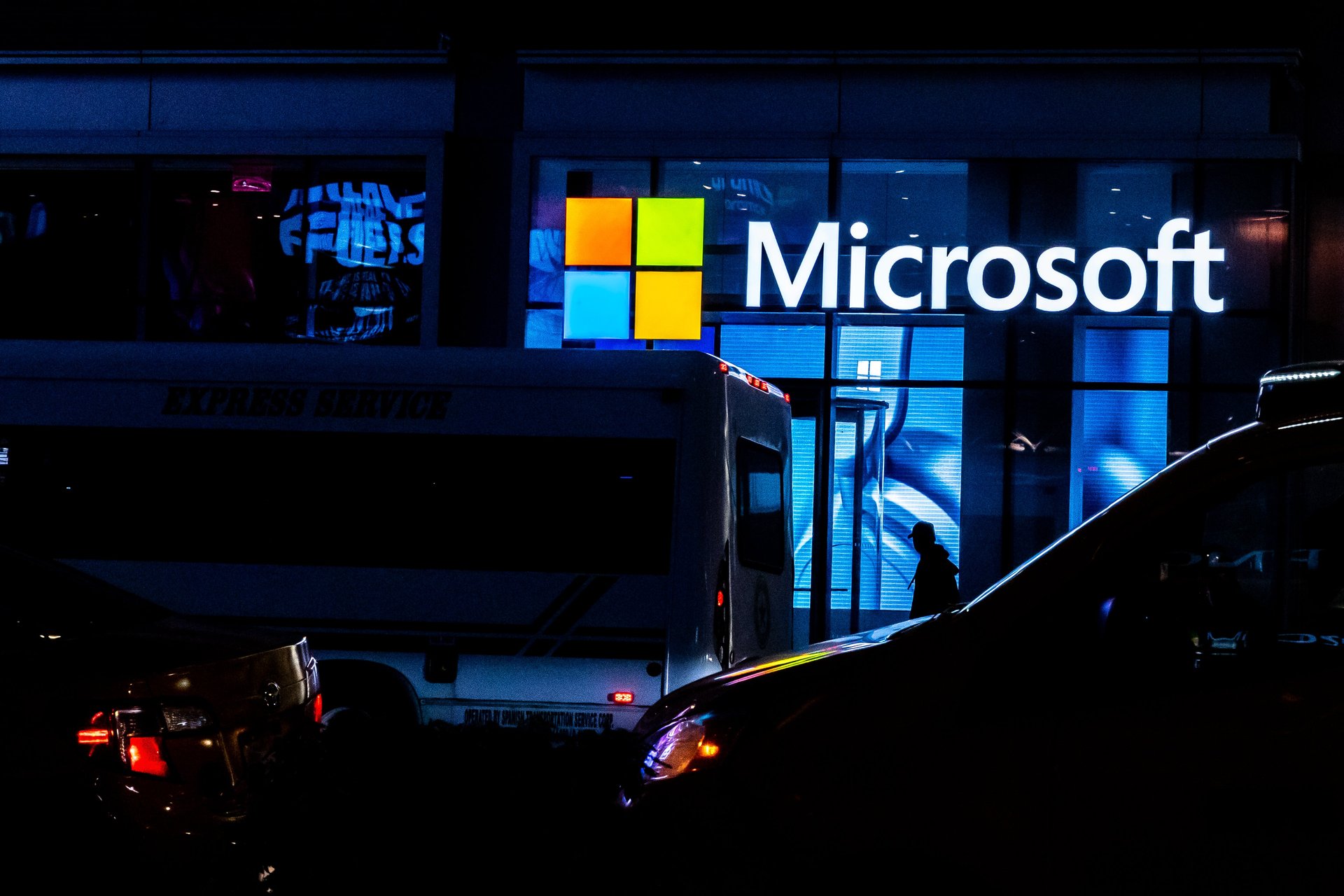🌏 Big Tech’s big week
Plus: Shelf-destruction.

Good morning, Quartz readers!
Suggested Reading
Here’s what you need to know
Trump’s Dow-turn. President Donald Trump’s first 100 days in office had the worst market performance since the days of double-digit inflation under President Richard Nixon.
Related Content
He said, Xi said. Treasury Secretary Scott Bessent said Chinese officials need to take the lead on de-escalating trade war tensions between the U.S. and China.
AI-AI-Oh no. Trump pushed out the majority of the 200 AI experts hired by the previous administration, despite claiming he wants to advance AI in the U.S.
Cloud loses its silver lining. The AI data center race is slowing as lease pauses by Amazon and Microsoft suggest a recalibration.
Mainframe of mind. IBM announced plans to invest $150 billion in the U.S. over the next five years to fuel the economy and help the country maintain its role as a “global leader in computing.”
Huawei chips away at Nvidia. Huawei is reportedly set to start testing powerful AI chips that could rival Nvidia’s and would be the Chinese tech company’s most powerful AI semiconductor yet.
BYD taking charge. Chinese EV giant BYD is a huge threat to Tesla and other American car companies as it outpaces and outperforms their vehicles.
Rocket Man down. Elon Musk’s cost-cutting work as the head of DOGE is so unpopular that, right now, Americans dislike the Tesla CEO even more than they do their president.
Cloud-y with a chance of earnings
Microsoft reports after the bell on Wednesday, opening the floodgates for a high-stakes week across Big Tech. Analysts expect fiscal third-quarter earnings of $3.20 a share (up 8.8% from a year ago) on $68.4 billion in revenue (a 10.6% year-over-year gain) — solid growth, but hardly astounding numbers.
With tech stocks already struggling and tariff jitters continuing, Wall Street will look to Microsoft for positive signs, especially around AI and cloud spending.
Analysts have called the company’s setup “derisked” and have said that “software is the safety blanket in the storm,” with Microsoft serving as one of the Big 3 hyperscalers best positioned to weather the near-term economic uncertainty. But 55% of the company’s revenue comes from enterprise and PC sectors, where chief technology officers aren’t spending aggressively at the moment. Instead, cloud and AI budgets are being protected, and Microsoft’s Azure is expected to show slower growth compared with last quarter (30% in Q3 versus 40% in Q2).
The stakes are high: If Microsoft’s earnings are worse than expected, it could set a rocky tone for the rest of the Big Tech earnings season — and the year. Quartz’s Catherine Baab has more on why Microsoft could be on Cloud 9 — or in Cloud decline.
Ship hits the fan
According to Torsten Slok, chief economist at Apollo Global Management, a self-inflicted “voluntary” recession is headed straight for U.S. shores — and it could hit as early as this summer.
Earlier this month, Slok said there was a 90% chance of a “voluntary trade reset recession,” triggered by Trump’s tariffs. And over the weekend, he warned of a domino effect: Container ship movement will come to a halt, which means trucking demand will tank, which means stores will run out of inventory — which means a full-blown recession by summer.
It’s not just the tariffs that are to blame. Slok wrote of a number of other factors working against the U.S. economy, including lower consumer and corporate confidence, retaliation and declining tourism from other countries, and DOGE’s mass layoffs. To drive home his point, the economist pointed to the “rapid downward revisions” that companies have made since Trump’s “Liberation Day” announcement.
Slok calculates that increasing the average tariff rate from 3% to 18% will affect the U.S. GDP by four percentage points in 2025. While he sees a path to preventing this voluntary recession, his bottom line is this: “If the current level of tariffs continues, a sharp slowdown in the U.S. economy is coming.” Quartz’s Kevin Williams has more on how trade tides are pulling retailers under.